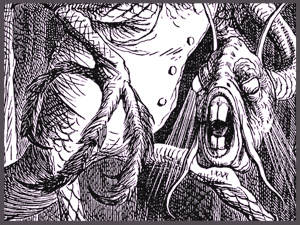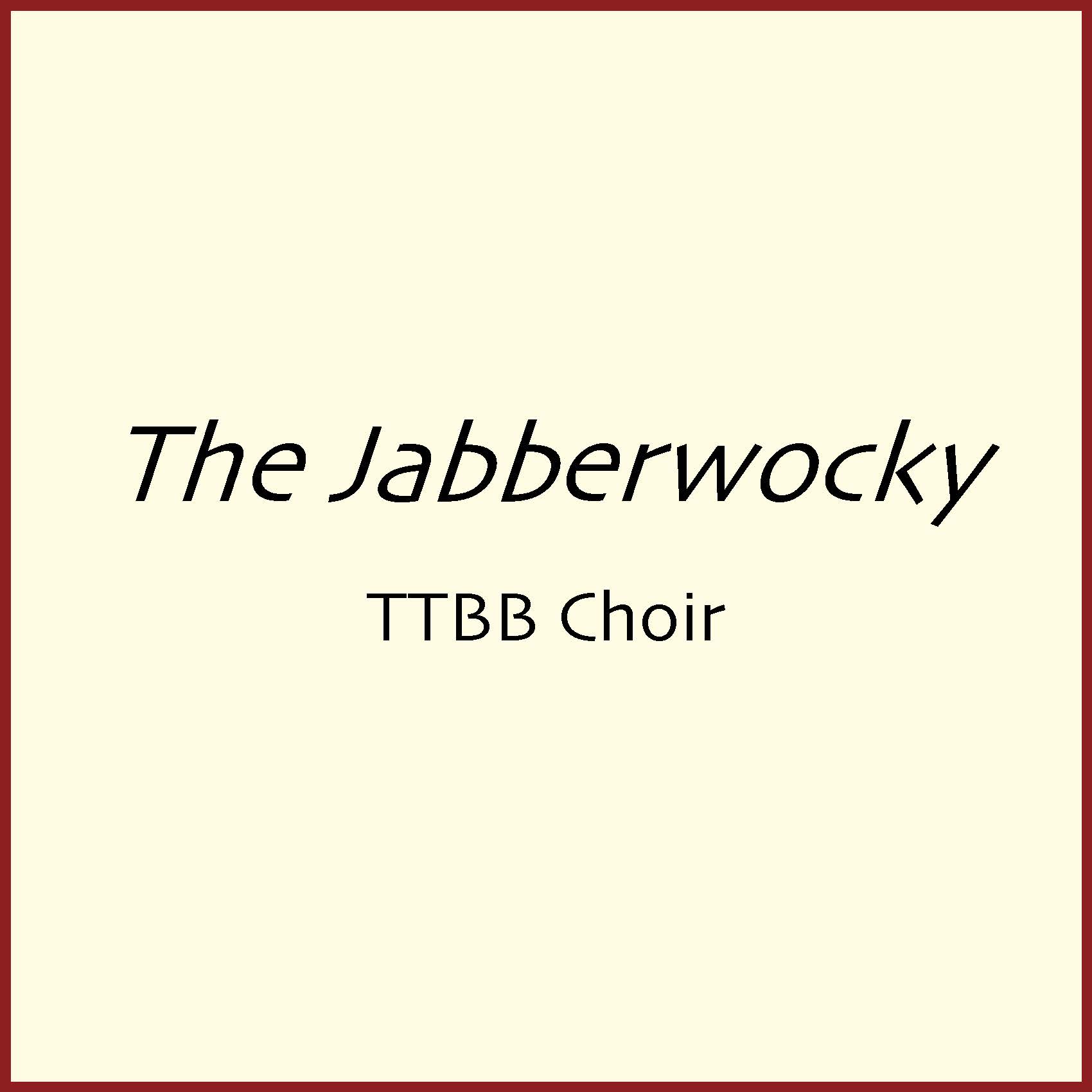Typically, when commissioned to compose choral pieces, I spend at least half of my time researching possible texts. I love the process, but at the same time often find it frustrating! There are often copyright issues to contend with that are difficult to resolve. And even when not, there is such a huge trove of possibilities that one can get lost in it.
In this case, Frank Albinder, the terrific conductor of the Virginia Glee Club approached me about composing a piece for the Club. I was especially intrigued as I had yet to compose for a TTBB chorus. The guys in the Club provided some suggestions, and, while I responded to several, in the end none felt quite right. One day, while browsing through some of my poetry books, I came upon the Jabberwocky. It’s rhythms started to dance, and I knew I had found my text! After the Club agreed, I started researching the text in depth, learning that a number of words had meanings. Outgrabe, for instance, is a kind of bellowing whistle, and of course I decided to use that sound in the piece! In addition to the verbal sounds and rhythms, I was drawn to the metaphorical slaying of the dragon. Jabberwocky is, in the end, an optimistic poem, a story of overcoming a major obstacle.
In setting the text, I tried to capture something of the whimsy of the original in the music. The chorus accompanies itself with interludes of percussive nonsense syllables, finger snaps, claps, rolled tongue roars and whistles. The Jabberwocky is dedicated to the Virginia Glee Club and its conductor Frank Albinder. A review in the Choral Newsletter says “This fanciful, creative work is brilliantaly conceived and constructed to the famous poem by Lewis Carroll….The text painting is driven by well-conceived rhythms, melodies and harmonies. Collectively, they build a unified conception of tremendous poetic and musical expression. The harmonies are brilliant by approachable. A perfect choice for the ending of a concert, this is a great addition to the men’s choral repertory.”
I was delighted that the review author, Mari Staltz, had perceived so much of what I had tried for in this text setting, and look forward to sharing the piece widely. The Washington Camerata, again conducted by Mr. Albinder, performed it (6/2/12) at the Kennedy Center in Washington DC, including it on a spectacular program of music written by women for men, titled Guys and Dolls. It was a clever programming idea that introduced a wide range of composers to an audience who likely knew none of them!


